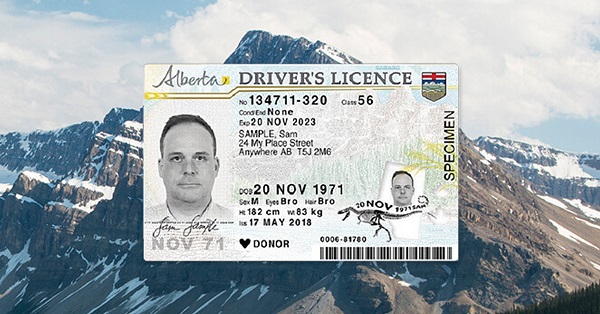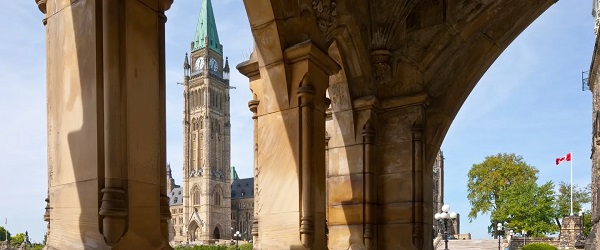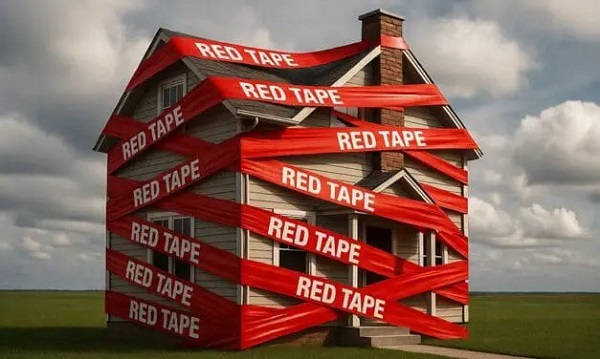2025 Federal Election
Beijing’s Echo Chamber in Parliament: Part 2 – Still No Action from Carney


 Dan Knight
Dan Knight
As Michael Chong reveals Canadians coerced by China, Mark Carney continues to protect Paul Chiang—proving once again the Liberal swamp won’t police its own, even when national security is on the line.
This is no longer just a political scandal—this is a national disgrace. Joe Tay, the Conservative candidate targeted by Paul Chiang’s shocking comments, has now broken his silence—and it’s nothing short of damning.
In his official statement, Tay pulls no punches. He calls Chiang’s words what they are: “threatening public comments… intended to intimidate me.” Not debate. Not disagreement. Intimidation. And Tay makes it crystal clear: “no apology is sufficient.” Why? Because this isn’t some offhand gaffe—this is the exact playbook of the Chinese Communist Party, imported straight into Canadian politics.
Let that sink in. A Canadian MP, standing on Canadian soil, echoed a bounty issued by a hostile foreign regime. And the man targeted—Joe Tay—says it plainly: “Suggesting that people collect a bounty from the Chinese Communist Party to deliver a political opponent to the Chinese Consulate is disgusting and must never be condoned.”
Disgusting—and yet, here we are. Paul Chiang is still in the Liberal fold. Mark Carney, the man who wants to run the country, says nothing. Meanwhile, Tay is left fearing for his safety—already in touch with the RCMP before the public even knew what Chiang had said.
This is the state of Canadian politics under the Liberal machine: where the only people paying a price are the ones speaking out. Where the candidate who exposes foreign interference is the one who needs police protection. And the one who parrots CCP propaganda? He gets to keep his seat.
Even Michael Chong—a guy who knows firsthand what CCP intimidation looks like—is stepping in and asking the obvious question: Why is Paul Chiang still a Liberal candidate?
Chong just posted on X (formerly Twitter) that at least three Canadians have already been coerced into returning to the People’s Republic of China against their will. Against their will. Think about that. Beijing is actively running transnational repression ops on Canadian soil—and now, one of Carney’s own candidates is joking about turning a political opponent over to the CCP for a cash reward. And we’re supposed to believe the Liberals take foreign interference seriously?
Chong’s post includes actual evidence—parliamentary testimony, U.S. indictments, and RCMP-relevant keywords like “United Front,” “overseas station,” and “minutes or less.” In other words, this isn’t conspiracy talk. This is real. It’s happening. And it’s been happening under the Liberals’ watch.
And still, Paul Chiang stays in the race. No suspension. No investigation. Nothing from Carney, the security-cleared savior of the Liberal establishment.
And here’s where the hypocrisy hits terminal velocity.
Remember, Mark Carney has a security clearance. That’s been his whole pitch. That somehow he is more qualified to lead Canada because he has access to classified intelligence. Because he is in the know. He’s the grown-up in the room. The steady technocrat with one foot in the Privy Council and the other in Davos.
Well, here’s a question: What good is a security clearance if your own MPs are acting like a propaganda arm for Beijing?
Because while Mark “Bank of China” Carney sits on his classified briefings, his Liberal MP Paul Chiang is out there, on camera, floating the idea that a Conservative candidate should be delivered to a Chinese consulate to “claim the bounty” placed on his head by the Chinese Communist Party.
Let’s repeat that: A Canadian MP is echoing a CCP-issued bounty, and Carney—the man with all the intelligence, all the briefings, all the supposed national security credentials—says nothing. Not a peep. Not even a token tweet.
So what exactly is that security clearance buying us, Mark? If you’re such an expert on foreign threats, why can’t you recognize one when it’s sitting in your own caucus?
It’s a joke. The entire premise of Carney’s leadership bid is unraveling in real time. He promised Canadians he could stand up to foreign interference—meanwhile, his own candidate in Markham–Unionville is out there sounding like a CCP press secretary. And instead of showing leadership, Carney hides behind talking points, closed-door fundraisers, and his carefully curated media handlers.
Joe Tay is right. This isn’t just about intimidation—it’s about sending a “chilling signal to the entire community.” And the message from Carney is loud and clear: if you’re a threat to the Liberal regime, they’re not just coming for your policies. They’re coming for you.
Security clearance? Please. It’s not leadership if you only speak up when it’s politically convenient. And if Carney won’t condemn this, then he’s not qualified to lead a PTA meeting, let alone a country.
Subscribe to The Opposition with Dan Knight .
For the full experience, upgrade your subscription.
2025 Federal Election
Post election report indicates Canadian elections are becoming harder to secure

Chief Electoral Officer Stéphane Perrault highlights strong participation and secure voting, but admits minority politics, rising costs, and administrative pressures are testing the system’s limits.
Monday in Ottawa, Stéphane Perrault, Canada’s Chief Electoral Officer, delivered a long press conference on April’s federal election. It was supposed to be a victory lap, record turnout, record early voting, a secure process. But if you listened closely, you heard something else: an admission that Canada’s election machinery is faltering, stretched thin by a system politicians refuse to fix.
Perrault touted the highest turnout in 30 years, 69 percent of eligible voters, nearly 20 million Canadians. Almost half of those ballots were cast before election day, a dramatic shift in how citizens take part in democracy.
“Twenty years ago, less than 7% voted early. This year, nearly half did,” Perrault told reporters. “Our system may have reached its limit.”
That’s the core problem. The system was built for one decisive day, not weeks of advance voting spread across campuses, long-term care homes, mail-in ballots, and local Elections Canada offices. It’s no longer a single event; it’s an extended process that stretches the capacity of staff, polling locations, and administration.
Perrault admitted bluntly that the 36-day writ period, the time between when an election is called and when the vote happens, may no longer be workable. “If we don’t have a fixed date election, the current time frame does not allow for the kind of service preparations that is required,” he said.
And this is where politics collides with logistics. Canada is once again under a minority government, which means an election can be triggered at almost any moment. A non-confidence vote in the House of Commons, where opposition parties withdraw support from the government, can bring down Parliament in an instant. That’s not a flaw in the system; it’s how parliamentary democracy works. But it leaves Elections Canada on permanent standby, forced to prepare for a snap election without knowing when the writ will drop.
The result? Sixty percent of voter information cards were mailed late this year because Elections Canada couldn’t finalize leases for polling stations on time. Imagine that, more than half the country got their voting information delayed because the system is clogged. And that’s when everything is supposedly working.
The April election cost an estimated $570 million, almost identical to 2021 in today’s dollars. But here’s the kicker: Elections Canada also spent $203 million just to stay ready during three years of minority Parliament. That’s not democracy on the cheap. That’s bureaucracy on retainer.
Perrault admitted as much: “We had a much longer readiness period. That’s the reality of minority governments.”
No Foreign Interference… But Plenty of ‘Misinformation’
Canada’s top election official wanted to make something perfectly clear: “There were no acts of foreign interference targeting the administration of the electoral process.” That’s the line. And it’s a good one… reassuring, simple, the kind of phrase meant to make headlines and calm nerves.
But listen closely to the wording. He didn’t say there was no interference at all. He said none of it targeted the administration of the vote. Which raises the obvious question: what interference did occur, and who was behind it?
Perrault admitted there was “more volume than ever” of misinformation circulating during the 2025 election. He listed the greatest hits: rumors that Elections Canada gives voters pencils so ballots can be erased, or claims that non-citizens were voting. These are hardly new — they’ve appeared in the U.S. and in Europe too. The difference, he said, is scale. In 2025, Canadians saw those narratives across more channels, more platforms, more communities than ever before.
This is where things get interesting. Because the way Perrault framed it wasn’t that a rogue actor or a foreign intelligence service was pushing disinformation. He was blunt: this was a domestic problem as much as anything else. In his words, “whether foreign or not,” manipulation of information poses the “single biggest risk to our democracy.”
Perrault insists the real danger isn’t foreign hackers or ballot-stuffing but Canadians themselves, ordinary people raising questions online. “Information manipulation, whether foreign or not, poses the single biggest risk to our democracy,” he said.
Well, maybe he should look in the mirror. If Canadians are skeptical of the system, maybe it’s because the people running it haven’t done enough to earn their trust. It took years for Ottawa to even acknowledge the obvious , that foreign actors were meddling in our politics long before this election. Endless commissions and closed-door reports later, we’re told to stop asking questions and accept that everything is secure.
Meanwhile, what gets fast-tracked? Not a comprehensive fix to protect our democracy, but a criminal investigation into a journalist. Keean Bexte, co-founder of JUNO News, is facing prosecution under Section 91(1) of the Canada Elections Act for his reporting on allegations against Liberal candidate Thomas Keeper. The maximum penalty? A $50,000 fine and up to five years in prison. His reporting, incidentally, was sourced, corroborated, and so credible that the Liberal Party quietly dropped Keeper from its candidate list.
If people doubt the system, it isn’t because they’re gullible or “misinformed.” It’s because the government has treated transparency as an afterthought and accountability as an inconvenience. And Perrault knows it. Canadians aren’t children to be scolded for asking questions, they’re citizens who expect straight answers.
But instead of fixing the cracks in the system, Ottawa points the finger at the public. Instead of rebuilding trust, they prosecute journalists.
You don’t restore faith in democracy by threatening reporters with five years in prison. You do it by showing, quickly and openly, that elections are beyond reproach. Until then, spare us the lectures about “misinformation.” Canadians can see exactly where the problem lies, and it isn’t with them.
The Takeaway
Of course, they’re patting themselves on the back. Record turnout, no servers hacked, the trains ran mostly on time. Fine. But what they don’t want to admit is that the system barely held together. It was propped up by 230,000 temporary workers, leases signed at the last minute, and hundreds of millions spent just to keep the lights on. That’s not stability. That’s triage.
And then there’s the lecturing tone. Perrault tells us the real threat isn’t incompetence in Ottawa, it’s you, Canadians “sharing misinformation.” Excuse me? Canadians asking questions about their elections aren’t a threat to democracy, they are democracy. If the government can’t handle people poking holes in its story, maybe the problem isn’t the questions, maybe it’s the answers.
So yes, on paper, the 2025 election looked like a triumph. But listen closely and you hear the sound of a system cracking under pressure, led by officials more interested in controlling the narrative than earning your trust. And when the people running your elections think the real danger is the voters themselves? That’s when you know the elastic isn’t just stretched. It’s about to snap.
Subscribe to The Opposition with Dan Knight .
For the full experience, upgrade your subscription.
2025 Federal Election
NDP’s collapse rightly cost them official party status

This article supplied by Troy Media.
 By Michael Taube
By Michael Taube
Official party status requires 12 seats. The NDP got seven. End of story
Rules are rules.
That, in a nutshell, is why the NDP wasn’t granted official party status in the House of Commons on Monday. Prime Minister Mark Carney and the
Liberals, to their credit, made the right decision.
Let’s examine why.
The 1963 Senate and House of Commons Act passed an amendment that gave an annual allowance to party leaders other than the prime minister and
leader of the Opposition. In doing so, the Canadian government had to establish what constitutes a “political party.” The definition they came up with was a sensible one: it had to have a “recognized membership of 12 or more persons in the House of Commons.”
This important amendment is still used today.
The NDP fell from 24 to a paltry seven seats in last month’s federal election. (There are a total of 343 seats in the House of Commons.) They finished with 1,234,673 votes, or 6.29 per cent, which was behind the Liberals, Conservatives and Bloc Québécois. Party leader Jagmeet Singh, who had represented the former Burnaby South riding since 2019, finished a distant third in the newly created Burnaby Central riding and resigned.
The NDP’s seven seats is well below the 12-seat requirement needed for official party status. This means Canada’s socialist alternative won’t be able to ask questions in the House of Commons and will lose out on money for research purposes.
Or, to put it another way, they’re plumb out of luck.
Hold on, some people said. They pointed out that the NDP’s seat count and popular vote only plummeted because many progressive voters backed Carney and the Liberals as the best option to counter U.S. President Donald Trump and his tariffs. They felt that the NDP’s long history as a champion for unions and the working class should count for something. They suggested there should be an exception to the rule.
Guess what? They’re wrong.
This is the worst election result in the party’s history. Even its predecessor, the Co-operative Commonwealth Federation (CCF), did marginally better in its first campaign. The CCF won seven out of 245 seats—and earned 410,125 votes, or 9.31 per cent—in the 1935 election. Party leader J.S. Woodsworth, who had represented the riding of Winnipeg North Centre as an Independent Labour MP since 1925, comfortably held his seat.
Meanwhile, this won’t be the first time they’ve ever lost official party status.
The NDP dropped from 43 to nine seats in the 1993 election. It was a dismal showing, to say the least. There was a suggestion at the time that then-party leader Audrey McLaughlin, the first woman to lead a party with political representation in Canada’s House of Commons, deserved a better fate. While the NDP certainly came closer to achieving the 12-seat requirement in this particular election, Prime Minister Jean Chrétien and the Liberals decided against granting them official party status.
Why? As I mentioned earlier, rules are rules.
Then again, British pilot Harry Day notably told his fellow flying ace Douglas Bader in 1931, “You know my views about some regulations—they’re written for the obedience of fools and the guidance of wise men.”
Does this mean that individuals and organizations who follow rules are, in fact, fools? Not at all. While certain rules in a liberal democratic society can range from slightly questionable to utterly ridiculous, they’re usually put in place for a specific purpose.
In the case of the House of Commons, it’s to ensure that a bar has been set with respect to political representation. Is 12 seats the right number? That’s difficult to say. It certainly prevents small protest parties and one-issue parties that unexpectedly win a tiny number of seats in an election from acquiring power and status right off the bat. They need to win more seats and grow in size and stature to reach a point of respectability. Most of them never reach this point and disappear while others float in a constant state of mediocrity like the Green Party of Canada. ’Tis the nature of the political beast.
One final point. If Singh and the NDP had reached double digits in total number of seats in 2025, a solid case could have been made in favour of official party status. If they had finished with 11 seats, it would have almost been a lock. Neither scenario ultimately materialized, which is why Carney and the Liberals did exactly what they did.
Michael Taube is a political commentator, Troy Media syndicated columnist and former speechwriter for Prime Minister Stephen Harper. He holds a master’s degree in comparative politics from the London School of Economics, lending academic rigour to his political insights.
Troy Media empowers Canadian community news outlets by providing independent, insightful analysis and commentary. Our mission is to support local media in helping Canadians stay informed and engaged by delivering reliable content that strengthens community connections and deepens understanding across the country.
-

 Business1 day ago
Business1 day agoCarney Admits Deficit Will Top $61.9 Billion, Unveils New Housing Bureaucracy
-

 Alberta1 day ago
Alberta1 day agoAlberta first to add citizenship to licenses
-

 Alberta1 day ago
Alberta1 day agoBreak the Fences, Keep the Frontier
-

 Business8 hours ago
Business8 hours agoCarney’s ‘major projects’ list no cause for celebration
-

 Business7 hours ago
Business7 hours agoRed tape is killing Canadian housing affordability
-

 Business1 day ago
Business1 day agoCarney’s Ethics Test: Opposition MP’s To Challenge Prime Minister’s Financial Ties to China
-

 Business9 hours ago
Business9 hours agoGlobal elites insisting on digital currency to phase out cash
-

 Business1 day ago
Business1 day agoAttrition doesn’t go far enough, taxpayers need real cuts




